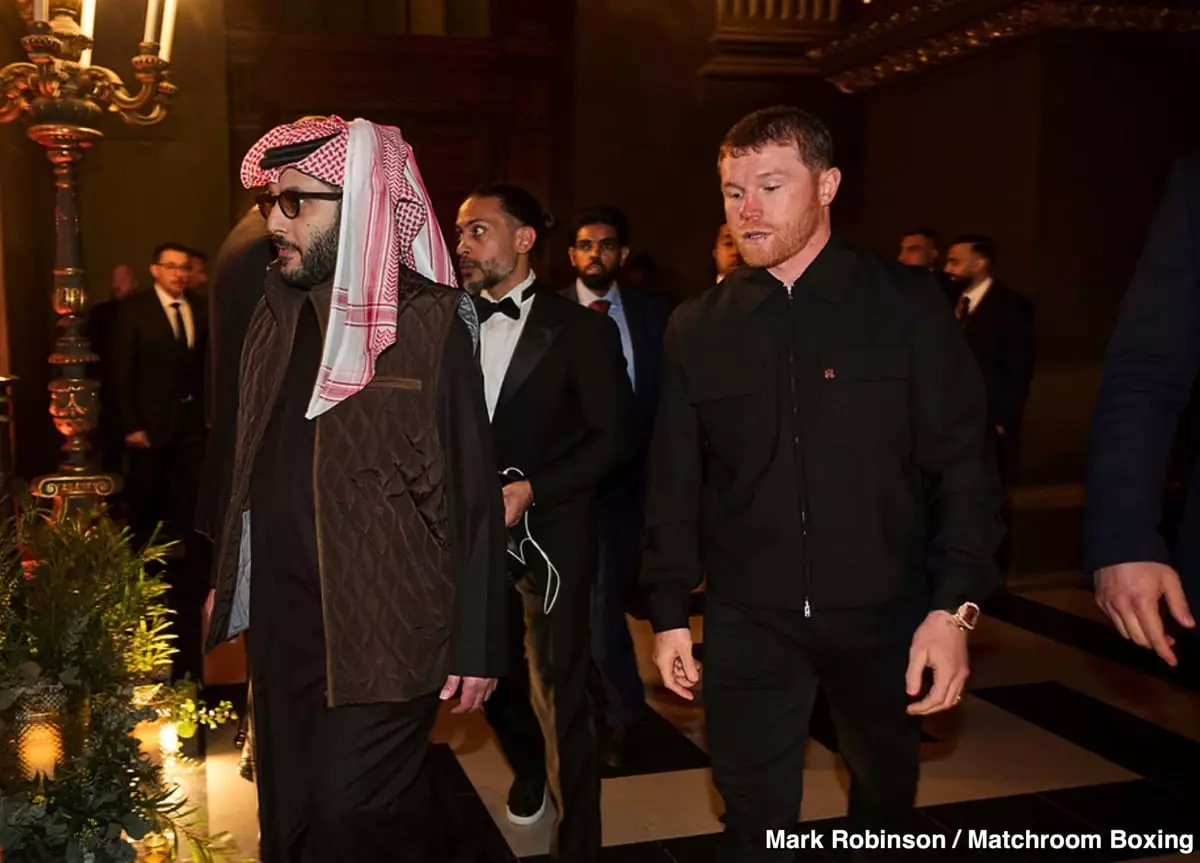In a recent episode of his Clap Back Thursday series, boxing legend Oscar De La Hoya delivered a scathing critique of current middleweight champion Canelo Alvarez, labeling him as a “money-hungry diva” whose actions prioritize financial gain over the integrity and spirit of boxing. This conversation opens a broader dialogue about the evolution of boxing and what representation of the sport means in terms of loyalty to fans, competition, and legacy.
Revisiting Canelo Alvarez’s Recent Choices
Alvarez’s decision to sign a four-fight contract with Turki Al-Sheikh for events in Riyadh has sparked considerable backlash. De La Hoya is far from the only voice in this criticism, as many in the boxing community question Alvarez’s motivations for choosing a less competitive match-up against William Scull over a potentially electrifying bout with David Benavidez. With Benavidez fresh off an impressive victory, the boxing world buzzed with excitement at the prospect of this match-up, but Alvarez opted for what many perceive as an easier fight that aligns more with monetary interests than sporting integrity.
This decision not only ruffled feathers but also reinforced the perception that Alvarez is increasingly focused on his financials rather than delivering thrill and satisfaction to his fan base. De La Hoya’s assertion that Alvarez’s latest choices mirror a shift towards a culture of self-serving “diva” behavior in boxing offers a compelling analysis of how commercial interests can overshadow the true competitive nature of the sport.
De La Hoya’s passionate comments touch on the essence of what it means to be a champion in the sport. Traditionally, boxing legends are remembered for their grit in taking on challengers from various weight classes and never shying away from tough fights. The idea of loyalty—both to fans and fellow fighters—plays an integral role in this legacy. By selecting less challenging opponents and turning down significant fights, Alvarez risks diluting the veneration that comes with being a world champion.
A key point that De La Hoya raises is that true stars elevate the sport as a whole, propelling both themselves and their competitors into the limelight. Identifying how champions can inspire greatness in their opponents challenges Alvarez’s current trajectory. Instead of forging ahead in a spirit of rivalry, there seems to be an emerging complacency that detracts from the aspirational quality of mixing with the best.
De La Hoya’s assertion that Alvarez has contributed to the “softest, money-hungry” era in boxing raises essential questions about authenticity in sport. His reference to past champions, including Julio César Chávez and Mike Tyson, highlights an era characterized by fierce rivalries and significant bouts that defined the sport’s narrative. These champions often faced their contemporaries regardless of the stakes, showing that the love for the sport and adherence to its traditional values went hand in hand with their illustrious careers.
In stark contrast, there seems to be a trend in contemporary boxing, where financial incentives often outweigh athletic excellence. It leaves fans yearning for the genuine rivalries that once energized the sport. Instead of witnessing monumental match-ups that resonate with the audience, we find discussions largely dominated by contract details, promoter dealings, and elusive fight announcements.
Oscar De La Hoya’s commentary serves as a significant critique of both Canelo Alvarez and the broader boxing landscape today. His words highlight a pivotal struggle between money and authenticity, a duality that boxing fans must grapple with in an era increasingly dominated by commercial interests. As boxing continues to evolve, a rebirth of competitive spirit—marked by fighters willing to challenge themselves, their rivals, and their legacies—could restore some lost pride in the sport.
Considering the weight of these conversations surrounding loyalty, legacy, and integrity, it becomes vital for contemporary champions to acknowledge their role as stewards of the sport. Fans deserve bouts that excite, challenge, and truly represent the spirit of boxing; these attributes are the hallmarks of champions past and should guide the future trajectory of the sport.


Leave a Reply